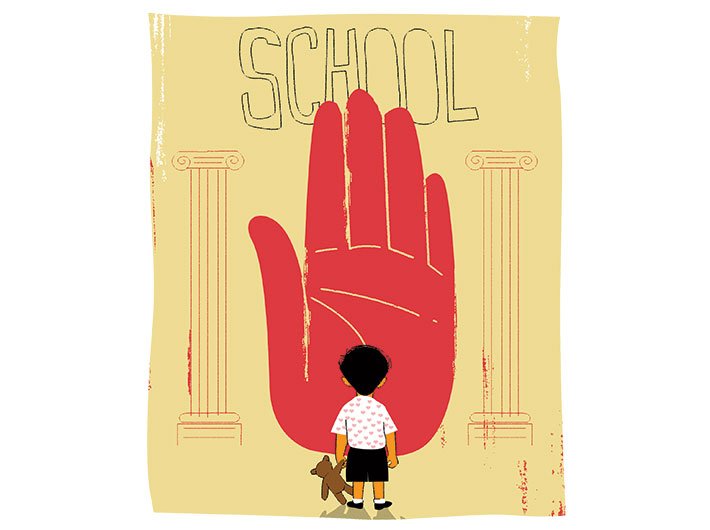Expenditure as a share of total approved budgets has been decreasing for Sarva Shiksha Abhiyan
Sarva Shiksha Abhiyan, an ambitious programme aimed at the universalisation of elementary education in India, has not been fully effective.
Launched in 2001, it aims to provide universal education to children between the ages of 6 to 14 years. SSA is the primary vehicle for implementing the Right of Children to Free and Compulsory Education Act passed in 2009.
In Financial Year (FY) 2018-19, the government allocations for SSA stands at Rs 26,129 crore, an 11 percent increase over the previous FY, said Accountability Initiative (AI) at the Centre for Policy Research.
“SSA allocations however, remain far below the resource estimates made by MHRD. In FY 2017-18, while MHRD estimated a resource demand of Rs 55,000 crore, SSA received only Rs 23,500 crore, Revised Estimates (RE),” it said.
Read: What has gone wrong with the Right to Education
It noted that expenditure as a share of total approved budgets has been decreasing. In FY 2016-17, 66 per cent of the approved budget was spent, down from 70 percent in FY 2015-16. There are, however, state differences. In FY 2016-17, while Maharashtra spent 84 percent of its approved budget, West Bengal spent only 37 percent.
Also, in FY 2016-17, SSA budgets towards quality related interventions accounted for only 9 per cent of total approved budgets and 69 per cent of this budget was spent. There are state differences. While Kerala allocated 38 percent and spent the entire approved budget for quality; share of quality was low in Bihar at 4 percent of which only 35 percent was spent.
According to the National Achievement Survey (NAS 2015), only 36 percent of Class V students across India scored more than 50 per cent in reading comprehension and 37 per cent scored more than 50 per cent in Mathematics in 2014.
Sarva Shiksha Abhiyan (SSA) is the Government of India’s (GoI) flagship elementary education programme.
According to the World Bank "The most crucial lesson learnt is that interventions for equity and quality have to run hand in hand and not one after the other." Unless education is of uniformly good quality, access to school alone cannot create equity between the disadvantaged and the more fortunate.
The Passage of the Right to Education Law in 2009 generated additional activities and policy changes in the education sector which significantly affected the project activities. Although project components were not changed, additional activities were included after March 2010 to accommodate these requirements, it noted.
The planning commission in a report in 2010 observed that despite decades of educational reform through various schemes such as Operation Blackboard, District Primary Education Programme (DPEP), it was realized that a vast majority of children were still out of the educational stream and efforts made by the states were insufficient to achieve universal elementary education.
The Sarva Shiksha Abhiyan(SSA) was conceived as a Centrally sponsored scheme at the end of the Ninth Five Year Plan to improve the educational status in the country through interventions designed to improve accessibility, reduce gender and social gaps and improve the quality of learning. The SSA laid down a framework for achieving the goals of universal enrolment through time bound targets and was conceived in a mission mode.
The SSA still has a long way to go before the target of education for all can be achieved.
